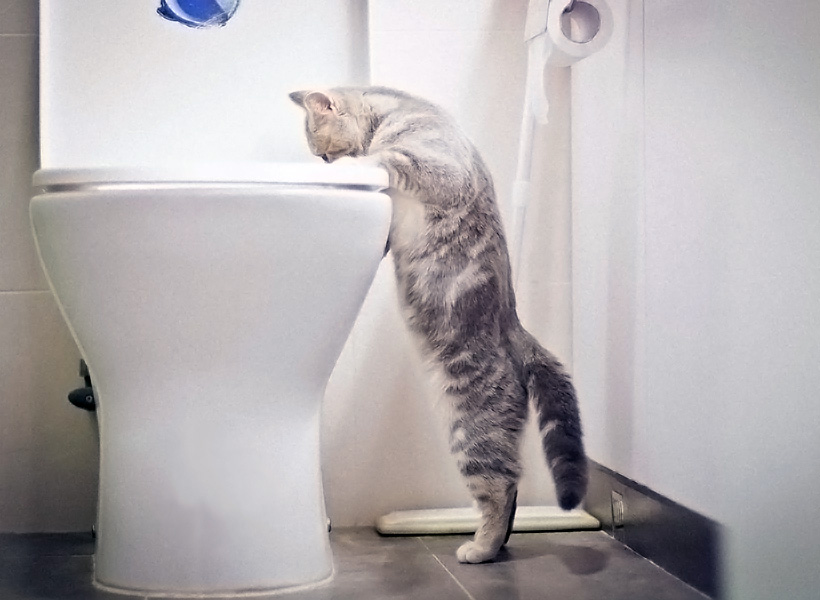Why You Should Never Flush Cat Poop Down Your Toilet - Critical Facts
Why You Should Never Flush Cat Poop Down Your Toilet - Critical Facts
Blog Article
They are making a number of great observations related to How to Dispose of Cat Poop and Litter Without Plastic Bags as a whole in this content down below.

Introduction
As pet cat owners, it's vital to bear in mind how we take care of our feline buddies' waste. While it might appear practical to flush feline poop down the toilet, this practice can have detrimental repercussions for both the atmosphere and human health.
Alternatives to Flushing
Fortunately, there are much safer and a lot more accountable ways to deal with feline poop. Consider the complying with options:
1. Scoop and Dispose in Trash
One of the most common method of disposing of pet cat poop is to scoop it into an eco-friendly bag and throw it in the trash. Make certain to use a dedicated clutter inside story and deal with the waste quickly.
2. Use Biodegradable Litter
Select naturally degradable pet cat trash made from materials such as corn or wheat. These trashes are eco-friendly and can be safely dealt with in the trash.
3. Bury in the Yard
If you have a backyard, think about hiding pet cat waste in an assigned location away from veggie gardens and water sources. Make certain to dig deep enough to stop contamination of groundwater.
4. Install a Pet Waste Disposal System
Invest in an animal waste disposal system particularly created for feline waste. These systems utilize enzymes to break down the waste, lowering odor and ecological effect.
Health and wellness Risks
Along with environmental issues, purging cat waste can likewise pose health and wellness risks to people. Pet cat feces may consist of Toxoplasma gondii, a bloodsucker that can create toxoplasmosis-- a potentially severe disease, especially for expecting females and people with damaged body immune systems.
Ecological Impact
Purging pet cat poop presents damaging microorganisms and bloodsuckers into the water system, positioning a significant threat to water communities. These pollutants can adversely affect aquatic life and concession water high quality.
Verdict
Liable animal possession extends past supplying food and sanctuary-- it likewise includes correct waste administration. By avoiding flushing pet cat poop down the bathroom and selecting alternative disposal methods, we can lessen our environmental footprint and safeguard human health and wellness.
Why You Should Never Flush Cat Poop Down the Toilet
A rose by any other name might smell as sweet, but not all poop is created equal. Toilets, and our sewage systems, are designed for human excrement, not animal waste. It might seem like it couldn’t hurt to toss cat feces into the loo, but it’s not a good idea to flush cat poop in the toilet.
First and foremost, assuming your cat uses a litter box, any waste is going to have litter on it. And even the smallest amount of litter can wreak havoc on plumbing.
Over time, small amounts build up, filling up your septic system. Most litter sold today is clumping; it is made from a type of clay that hardens when it gets wet. Ever tried to scrape old clumps from the bottom of a litter box? You know just how cement-hard it can get!
Now imagine just a small clump of that stuck in your pipes. A simple de-clogger like Drano isn’t going to cut it. And that means it’s going to cost you big time to fix it.
Parasitic Contamination
Believe it or not, your healthy kitty may be harboring a nasty parasite. Only cats excrete Toxoplasma in their feces. Yet it rarely causes serious health issues in the cats that are infected. Most people will be fine too if infected. Only pregnant women and people with compromised immune systems are at risk. (If you’ve ever heard how women who are expecting are excused from litter cleaning duty, Toxoplasma is why.)
But other animals may have a problem if infected with the parasite. And human water treatment systems aren’t designed to handle it. As a result, the systems don’t remove the parasite before discharging wastewater into local waterways. Fish, shellfish, and other marine life — otters in particular — are susceptible to toxoplasma. If exposed, most will end up with brain damage and many will die.
Depending on the species of fish, they may end up on someone’s fish hook and, ultimately on someone’s dinner plate. If that someone has a chronic illness, they’re at risk.
Skip the Toilet Training
We know there are folks out there who like to toilet train their cats. And we give them props, it takes a lot of work. But thanks to the toxoplasma, it’s not a good idea.

Do you like reading about Don’t flush cat feces down the toilet? Write a remark below. We will be interested to see your reactions about this blog entry. We hope to see you back again in the near future. Sharing is good. Helping others is fun. Thank you for taking the time to read it.
Course Detail Report this page